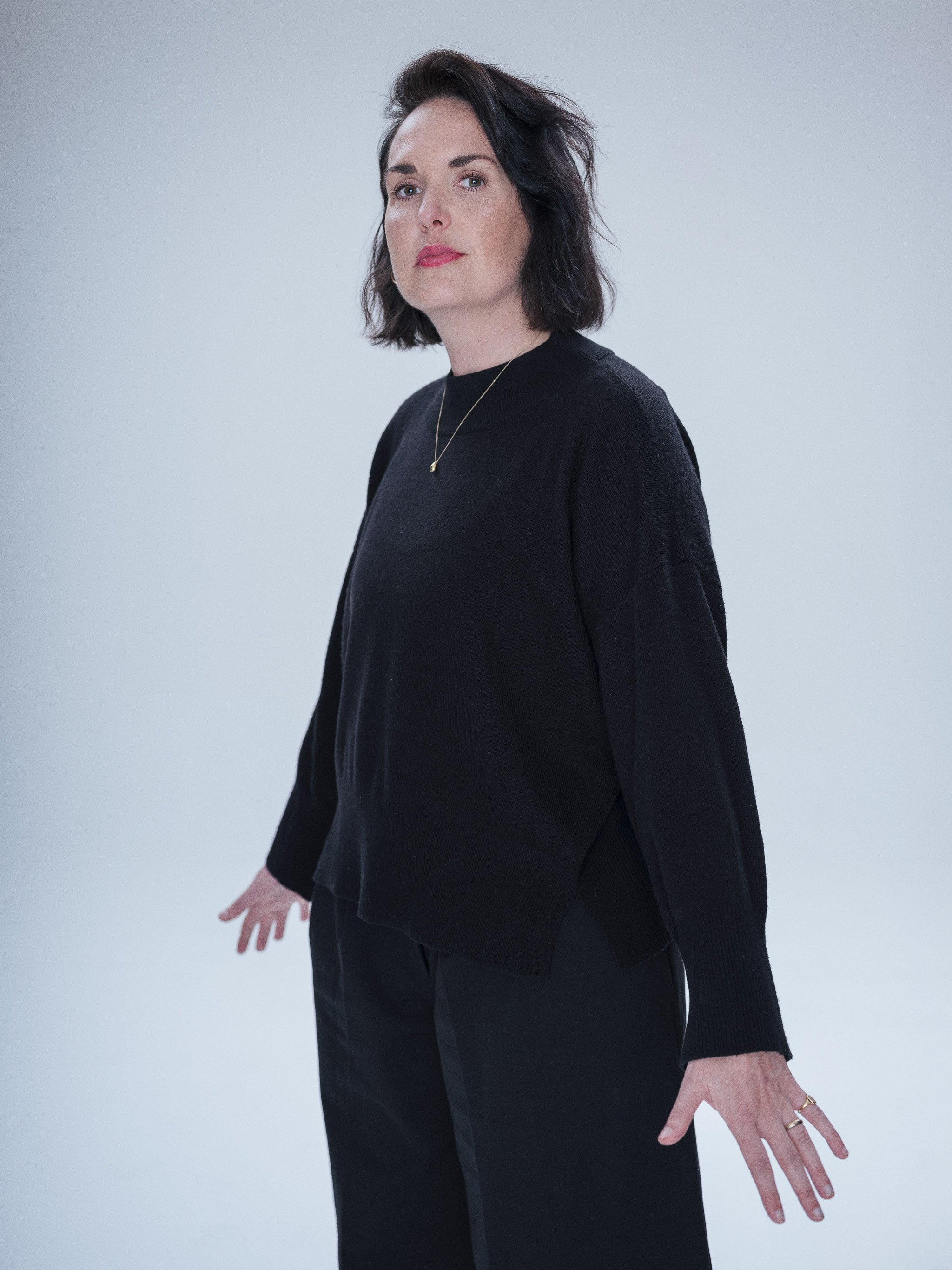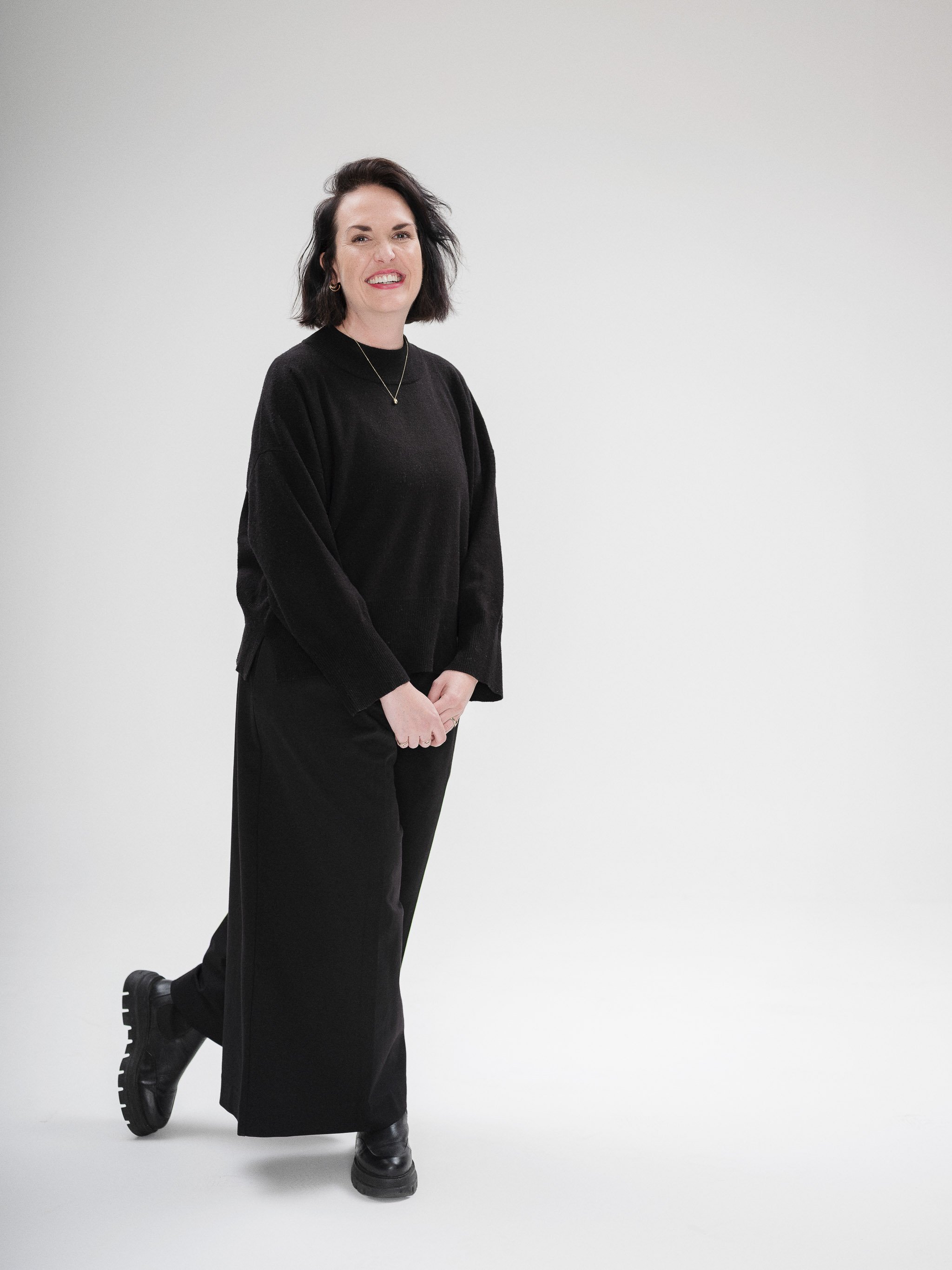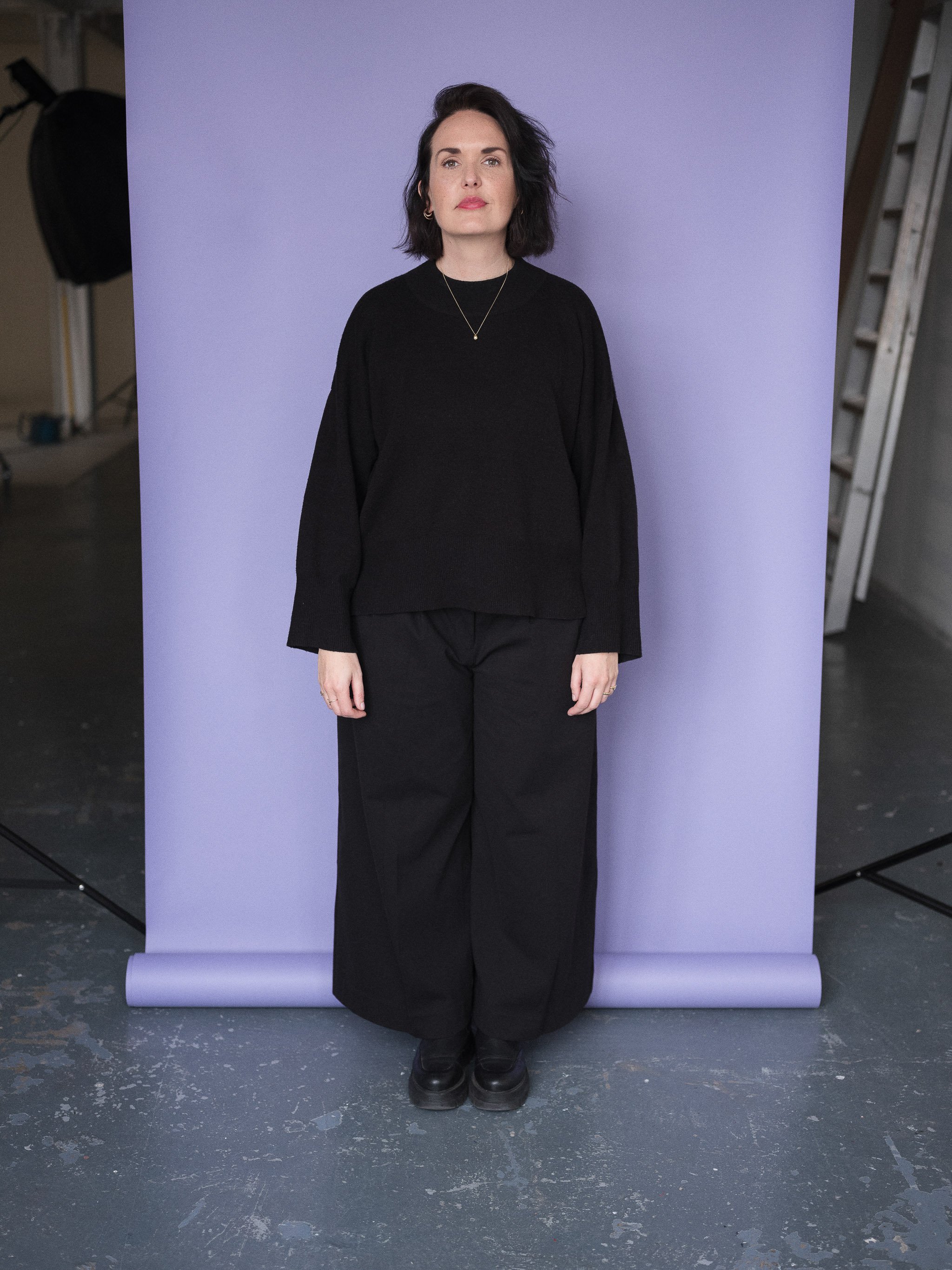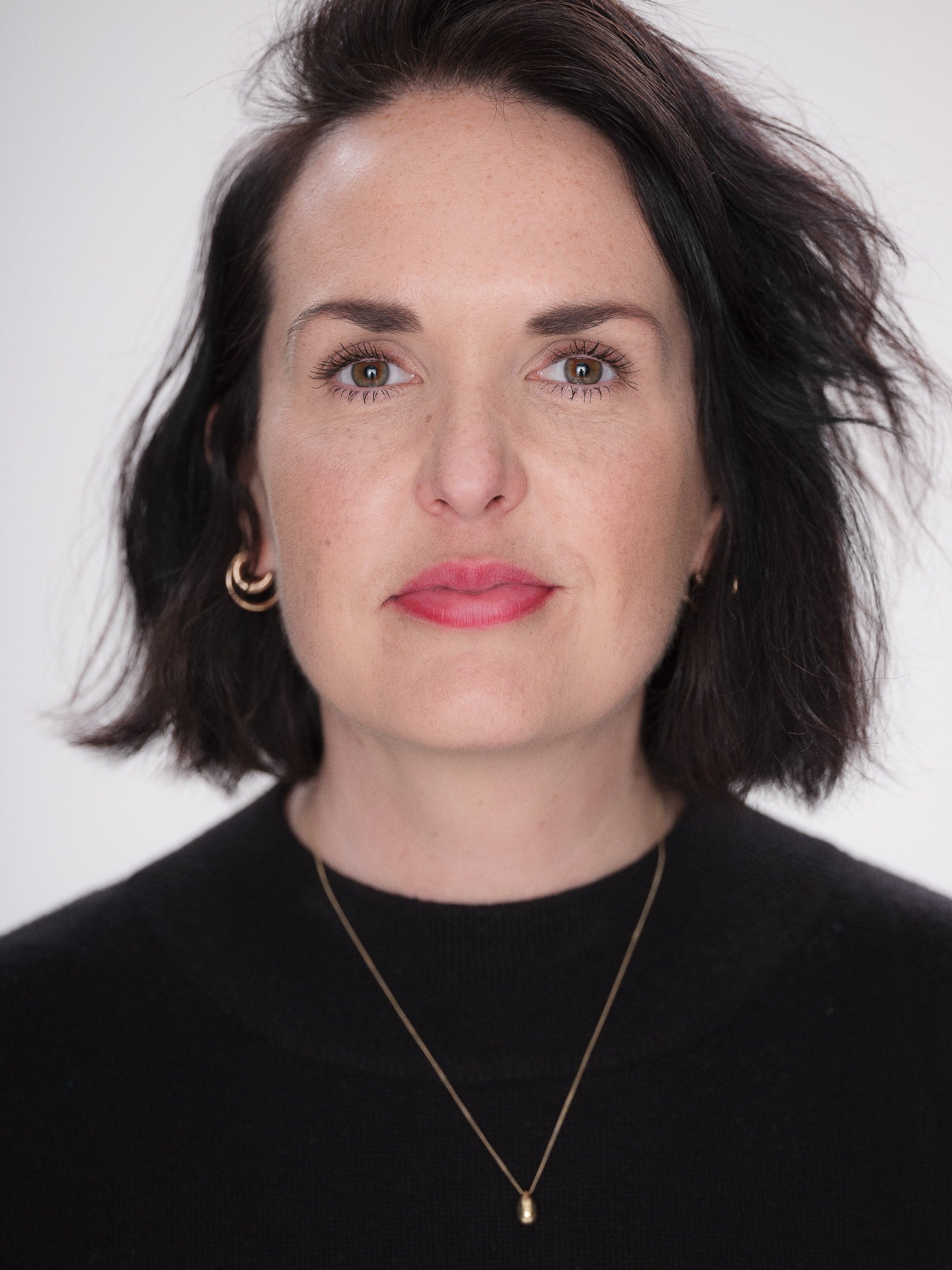BETH HAZON
Remapping the future
For almost 20 years, Beth Hazon has carved out a formidable career in some of the most demanding work environments, but with her latest business ventures and activism she is looking to right burning injustices to create a better and more productive society.
Interview by Alison Cowie
Photographs by Christopher Owens
Fashion was Beth Hazon’s first love and at 18, she said goodbye to her family home in Gosforth in favour of the fashion houses in London to build a career in an industry notorious for being ruthless and haughty.
She completed a degree at London College of Fashion and several placements to help her forge a path in fashion journalism - including time spent as an Editorial Assistant at the Daily Telegraph alongside the illustrious fashion director Hilary Alexander - but Beth soon realised what she longed for was going to allude her.
“I was the token working class one,” she explains. “Everyone else was loaded, with good connections, and I felt I didn’t belong. I got totally disheartened.”
Beth returned to the North East of England where she set about establishing a career in another demanding environment – creative agencies.
After a stint at Robson Brown, Beth joined Drummond Central, an up-and-coming strategic marketing, creative and digital agency based in Newcastle upon Tyne.
Beth’s future was mapped out at her first meeting with Drummond’s owners, Julie and Stephen Drummond, who predicted that Beth would one day run their agency.
Over the next nine years, Beth dutifully climbed each rung of the ladder, playing a pivotal part in Drummond’s impressive ascendancy. The agency turned heads around the world with its pioneering live odds advertising for Bet365, and made a splash with #DrummondPuddleWatch – an early viral sensation where a live stream of people traversing a troublesome puddle outside the Newcastle office broke the internet twice and set Twitter’s share price soaring.
Life for Beth was a whirlwind of international travel and high-stakes meetings with global brands keen to tap into Drummond’s raison d’être.
“Julie and Steve taught me that anything was possible,” Beth reflects. “I was flying around the world, having amazing experiences and getting to meet really interesting people. I loved every minute of it. It didn’t feel like a job.”
Personal highlights were negotiating contracts with Samuel L. Jackson and Ray Winstone (both of whom fronted Bet365 campaigns) and an interview on CNN about that infamous puddle.
Beth was also regularly recognised as a rising star in the region’s business community and she was the recipient of a prestigious IPA Women of Tomorrow Award.
“I was flying around the world, having amazing experiences and getting to meet really interesting people. I loved every minute of it. It didn’t feel like a job.”
Fulfilling her mentors’ prediction came in 2015 when Beth was appointed Managing Director of Drummond, armed with the knowledge and experience to continue its stellar reputation as one of the most exciting and forward-thinking UK creative agencies.
It was therefore a shock to some when Beth left the role just three years later.
The reason was not a failure of leadership, a lack of ambition or a falling out with the owners. It was simply because she had done what thousands of other working women do every year – she became a mother.
Traditional agency life – known for having to be available for clients at all times – was not conducive with Beth’s experiences as a first time mother.
She recalls sitting at her desk at 8.45am one day with overwhelming feelings of guilt.
“I felt like I was failing everyone. I hadn’t given myself the time, the credit and the compassion to be able to think how leading an agency could work for me [after having a baby]. I was straight back into agency life, and it was hectic and demanding.”
A diagnosis of post-natal depression compounded things and Beth took the drastic decision to leave the business that had nurtured her talent for over 12 years.
The young mum took four months off to assess her options, taking a one-day-a-month non-executive role at a property tech company to help pay the bills.
Beth then got a call from Joanna Feeley, founder of TrendBible, a Tyneside-based global trend forecasting company.
The pair talked at length about how they could help each other, as well as Joanna’s credentials as an early adopter of flexible working.
“Jo is a mother and works a four-day week,” Beth explains. “She has flexibility and offers that to her team. The company is founded on those principles.
Beth spent almost three years as Commercial Director at TrendBible where she helped navigate the international growth of the company.
It was while she was at TrendBible that Beth also became involved in Pregnant Then Screwed, a charity dedicated to ending workplace discrimination of families and supporting more than 80,000 mothers with free advice each year.
Becoming a Trustee in January 2019, Beth has worked with founder and friend Joeli Brearley to develop the strategic direction of the charity known for its directness and unwavering tone as it highlights injustices for working mums and campaigns for change.
Stats used by the charity are staggering - 54,000 women a year lose their job simply for getting pregnant, while 390,000 working mums experience negative and potentially discriminatory treatment at work, with less than one per cent taking legal action.
“We’re told that we need to get Britain back to work but it’s so difficult to be a working family,” Beth reflects. “Almost 4000 early years nursery providers have disappeared out of the market in the past two years and of those, 80 per cent say that the government funding they were given [when a child reaches three years old] didn’t cover the cost of the sessions.”
Beth continues: “Often, women have no other choice but to work part time. Eighty per cent of our part-time workforce are women but this can have a knock-on effect in terms of future finances. These women can be walking into poverty because they’re unable to build up the same provision as they could working full time.
“But this isn’t just a female issue,” Beth is quick to point out. “It’s a family issue. The ripple effects are unreal to partners, wider family and grandparents.”
Although Beth doesn’t feel she was pushed out of her role at Drummond Central, she is frustrated that a role she’d worked so hard for simply didn’t make logistical or financial sense when she became a mother due to the demands of traditional agency life and the exorbitant cost of childcare.
‘Yes. It was my choice to leave [Drummond],” she explains. “My future had been mapped out for me but after becoming a mother, it just didn't work for me anymore. I needed flexibility and to carve out my own future, in my own way.”
"The world is changing, and the bigger the shitshow gets, the more leaders realise that established ways of working might not serve them in the future.”
During the pandemic, a time when most families were struggling to balance work and home schooling, Beth decided this was the ideal time to start her own company - an ambition she had always harboured.
Along with co-founder Nic Quinn, the pair established Do Gooder - a business that can’t be neatly boxed as a design or a marketing agency – an understandable assumption given Beth’s background.
Instead, the founding partner explains that Do Gooder has been on a journey of discovery over the past two-and-a-half years in its quest to help businesses and organisations make more ethical decisions.
“We believe that the impact a business or an organisation has on society is real and you should own that and be responsible for it,” Beth explains.
“From experience, Nic and I recognised brands that listen to people and understand society, business, politics and culture are all interlinked perform better.
“Businesses need to understand their role in society and not be complacent, because the world doesn't stand still .”
The consultancy, Beth reveals, provides insights on brand, strategy, innovation and research, which is led by data and underpinned by ethics.
“It helps future proof businesses by enabling them to make really smart, financially secure decisions about what they're going to do and where they're going to go next,” she adds.
While Do Gooder was quick to appeal to the third sector, it is now attracting the attention of private companies, and it has recently worked with Durham-based Atom Bank.
“Boards are recognising investors are wanting more ESG [environmental, social and governance policies] on the agenda.
"The world is changing, and the bigger the shitshow gets, the more leaders realise that established ways of working might not serve them in the future. They know they need to think differently but don't know what that looks like practically. That's why they want to work with us. We show brands how to respond to the most critical issues facing businesses today.”
Mindful of their own experience of being working mums, the founders of Do Gooder provide its small core team and network of international freelancers with as much flexibility as possible, including access to subsidised childcare in the school holidays.
Meanwhile, Beth has been heavily involved in the Newcastle arm of Pregnant Then Screwed’s March of the Mummies – a national protest that will see 11 protests take place across the UK on Saturday, October 29, calling for reform on childcare, parental leave and flexible working.




“My future had been mapped out for me but after becoming a mother, it just didn't work for me anymore. I needed flexibility and to carve out my own future, in my own way.”
Digging further into the detail with Beth, huge investment by government and businesses will be required to fulfil the raft of demands the march is calling for. These include childcare workers to be paid the same as primary school teachers and more subsidised schemes to ensure childcare costs don’t exceed five per cent of a household’s income. Others are the requirement for businesses to offer flexible working to employees from day one (not after a probationary period) while both new parents should get a minimum of six weeks paid leave at 90 per cent of their salary.
But is this really the right time to be asking for sweeping change and investment from a calamitous government seemingly unable to set policy that doesn’t send the UK’s economy into a tailspin, or adding to the pressures of beleaguered businesses that are struggling with rising energy costs and squeezed profit margins?
For Beth, she firmly believes that the benefits far outweigh the costs.
“There's lots of things about labour shortages [in the media] and Brexit is definitely involved in that. But if you invest in childcare and you support families, you are going to increase your workforce.
“If you make that investment, the evidence shows that you will see a return. It will grow the economy.”
Asked which demand Beth would like to see given priority and she is in no doubt – the cost of childcare.
So is she confident that change in this area is forthcoming?
“In the current regime, I don’t think it’s going to happen but I would love to be pleasantly surprised. I’m not seeing any moves [towards more affordable childcare] yet but that doesn’t mean we should stop asking the question.”
Not content with simply joining the chorus of criticism around the high cost of childcare, Beth has co-founded her own provision, Happy Days Club, which offers flexible breakfast and after-school sessions and holiday clubs at two sites in Gosforth.
“My partner and I have our own businesses and we’ve found it really difficult to get childcare,” Beth explains. “The working day simply doesn’t fit with school times and holidays.
“An opportunity then came up to start a provision with one of my best friends who was the ex-assistant head at a huge comprehensive school in Newcastle.
“Basically, we set up the out-of-school provision that we wanted to send our own kids to. Happy Days Club offers ad hoc wrap-around and holiday care for children that parents can pay for online only when they need it. We’ve tried to make it as flexible and as easy as possible.”
Today, Beth may still be faced with the day-to-day juggling act facing many working families, but by creating a career on her own terms, her ambition and desire to engender meaningful and wide-ranging change for her and others has no bounds.




